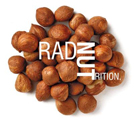Not ghostbusters…you read right, it’s all about bloat-busters today! Thanksgiving has passed and Halloween is on it’s way. I know that whenever our family gets together, we stuff ourselves with turkey, potatoes, brussel sprouts, pumpkin muffins, pumpkin pie, pumpkin everything, drinks, mom’s chocolate chip cookies, and then we feel very uncomfortable. Before you hit-up that 60 pack of mini chocolate bars, it might be time to consider reconnecting with your body. Holiday bloating and abdominal discomfort results from eating irregular foods, at different times, and in larger quantities. Feeling like this is completely normal sometimes, but if you struggle with it often and every time you’re at a social event, it’s time to reflect on how this happens, what your environmental and food triggers are, and how to prevent it. Check out our bloat-busting tips below. Try only one strategy at a time, consistently (e.g. for at least two weeks), to get a clear picture of what works for your body. If you’re still struggling, connect with your physician and registered dietitian.

1) Get back on schedule. It’s obvious I know, so why don’t we do it? Because we are human and it is completely normal to prefer to “take the path of least resistance.” I get that it’s easier to just eat leftover pie for lunch, but your stomach and digestive tract will thank you if you take 5-8 minutes to make a home-made wrap, sandwich, or salad and get back into your regular eating routine. Remember how you were eating when you didn’t feel so crappy? Let’s do that again!
2) Pay attention and notice if common “tummy trouble” foods are bothering you. Alcohol and caffeine can irritate the gut and increase the frequency of bowel movements (fun, I know). Deep-fried or rich foods can delay stomach emptying and give the sensation of heaviness in the stomach. While foods such as cabbage, cauliflower, broccoli, brussel sprouts, legumes, carbonated beverages, and fruit drinks sweetened with high fructose corn syrup can worsen abdominal discomfort and bloating. If you know one of these foods is a trigger for you, make a choice to either have a very small quantity or eliminate that one food for 3-4 weeks. After elimination, re-introduce the food in gradually increasing quantities (start small like ¼ cup) to assess how much you tolerate with minimal symptoms.
3) Investigate those sugar-alcohols. Sugar free foods, candies, chocolates, and gums sweetened with sugar-alcohols such as sorbitol, mannitol, xylitol, lactitol, isomalt are incompletely digested by the body. These sugar alcohols can pass into the large intestine, where they’re fermented by colonic bacteria, create gas, and cause a laxative-like effect in some individuals. If you think that sugar alcohols may be the culprit, read ingredient labels, pay attention to the quantity consumed, notice if symptoms are different on an empty stomach, and limit to an amount that’s tolerated.
4) What’s the rush? Slow it down buddy. Nobody is going to steal your plate from you! Eating quickly easily results in over-eating, gastroesophageal reflux, swallowing air, burping, belching, and abdominal discomfort. Aim to put 1 forkful into your mouth, chew it well, swallow, and THEN have the next forkful. Sound straightforward? It’s actually harder than it seems! Another strategy is to take a 15-20 minute break after your first helping and measure your level of fullness by using the hunger scale. If on a scale of 1-10 (1=starving and 10= stuffed to the point of discomfort) you’re close to a 7 or more, that means you’ve had enough and it’s time to put the plate and cup away.
5) Simmer down with some ginger tea. Ginger has been used to support digestion and relieve nausea in traditional medicine. Some of us prefer to regularly add it to our meals and cook with it. Others prefer to steep fresh ginger in boiling water and enjoy it as tea or try chewing a piece of crystallized ginger before a meal.
6) What are you wearing, what are you doing? Sitting for extended time periods, wearing tight clothing which constricts the abdomen or chest, and holiday stress are a bad combination. Be kind to your body, wear loose fitting clothing and bring back enjoyable movement that helps you feel positive and relaxed.
The brain and gut are connected in complex ways. When stress alters digestive function, it can manifest as gastroesophageal reflux, peptic ulcer disease, abdominal pain, loose bowel movements and even changes in type of bacteria that line the digestive tract. If stress is taking over, stop blaming food and start managing it today!
7) Bring in the bugs. In the right environment, fermentation allows bacteria and yeast to convert natural carbohydrate into acid or alcohol and promote the growth of beneficial microbes. Gradually introducing fermented foods such as kefir, yogurt, sauerkraut, kimchi, miso, tempeh, or kombucha can enhance the quality, quantity, and variety of healthy bacteria in the digestive system. This can protect the body against inflammation, digestive problems, and harmful bacterial strains.
Note: when fermented foods are pasteurized or exposed to high heat, the beneficial microbes are destroyed, however it may not be safe for those who are immunocompromised or pregnant to consume these foods in raw or unpasteurized forms.
References
http://www.dietitians.ca/Your-Health/Nutrition-A-Z/Healthy-Eating/got-gas.aspx
http://www.eatrightpro.org/resource/practice/position-and-practice-papers/position-papers/use-of-nutritive-and-nonnutritive-sweeteners
https://www.ncbi.nlm.nih.gov/pubmed/22314561
http://www.jpp.krakow.pl/journal/archive/12_11/pdf/591_12_11_article.pdf
https://www.ncbi.nlm.nih.gov/pubmed/24997029
https://www.ncbi.nlm.nih.gov/pmc/articles/PMC4679122/
https://www.eatrightontario.ca/en/Articles/Digestion/The-Pros-of-Probiotics.aspx
https://myhealth.alberta.ca/Health/pages/conditions.aspx?hwid=rlxsk
https://www.ncbi.nlm.nih.gov/pmc/articles/PMC4303846/
http://www.health.harvard.edu/healthbeat/the-gut-brain-connection
https://www.ncbi.nlm.nih.gov/pmc/articles/PMC5001845/
http://desireerd.com/2015/07/13/tummy-troubles-why-you-need-to-eat-fermented-foods/
http://www.theglobeandmail.com/life/health-and-fitness/health/fermented-foods-that-are-full-of-friendly-bacteria/article25818633/
http://www.foodinsight.org/articles/sugar-alcohols-fact-sheet
